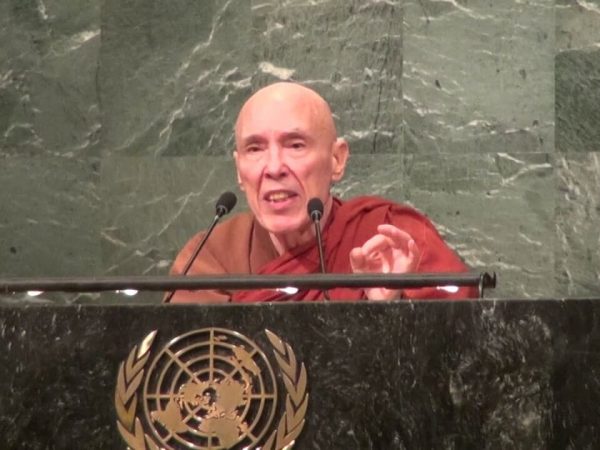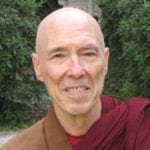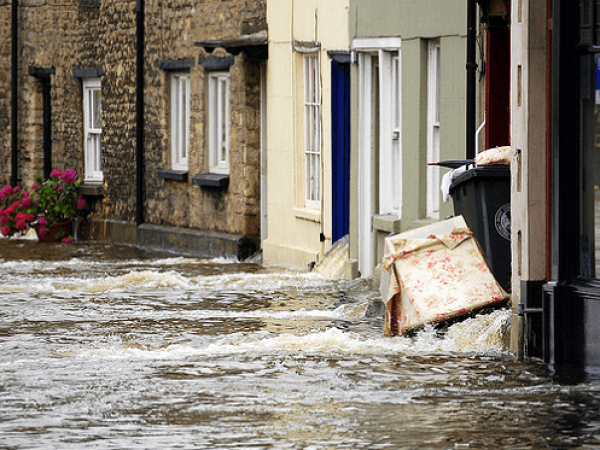Buddhist economics. When I first saw that phrase, I took it and broke it down into its two components: Buddhism and economics. My family is Buddhist, but I had very little idea as to what Buddhism was—to me, it was simply being nice, meditating, and being mindful. I was saddened by the fact that I knew next to nothing about my own religion. In addition, I had many relatives in China who were Buddhists, and I felt as if I was missing out on a shared connection. Thus, the class seemed like an excellent opportunity for me to acquire a basic knowledge of Buddhism. I also contemplated the economics aspect: I took ECON 110 during the fall semester and found it fascinating. I thought the class would be an excellent application of the basic microeconomic theories I’d learned.
I quickly found out my first impression of the class was quite off. We didn’t approach the subject as if they were two separate topics—Buddhism and economics. Rather, we integrated them by using core Buddhist ideas such as dukkha (Pali. unsatisfactoriness), taṇhā (craving), and paṭicca-samuppāda (dependent origination) to analyze social phenomena. I also was able to apply ideas to my life via experiential activities. Furthermore, I was surprised to see that many ECON 110 theories weren’t very relevant. These theories assumed that society’s problems had a singular cause and thus, solutions were simple; for example, if there’s a demand for something, adjusting supply should fix things. But in reality, problems are complex. Saskia Sassen’s book, Expulsions, opened my eyes to the fact that the causes of our society’s issues are difficult to identify because their roots are embedded deep within the complex structure of “persons, networks, and machines with no obvious center.”

How can we change habits that are deeply rooted within our culture?
As a person whose interests lie primarily within the sciences, I am accustomed to problems where I can quickly identify the question, and to which solutions are certainly possible: for example, if I want to create a certain compound in chemistry class, I simply need to figure out what chemicals to mix. However, the problems brought up in Buddhist economics class had no singular cause or solution: what causes social media addiction and how can you persuade millions of individuals to change their habits? Is it even possible to create a world where social media doesn’t result in addiction? The more we discussed the issue in class, the more I recognized that there are problems with no straightforward causes, solutions, or desired end-goals.
As I contemplated the complexities of these structural violences, I developed a metaphor in my head: a butterfly in a spider’s web. A butterfly stuck in a spider’s web is entangled deeply within the many threads—so enmeshed that it seems impossible to escape. With all these threads surrounding it, where does it even start? And where do these threads begin and end? Overwhelmed by the sheer magnitude of the web, the butterfly can choose not to struggle and simply give up. By giving up, the butterfly seals its fate and will never escape. When it comes to the structural violences within our society, the complexity of the problem is demoralizing—how can we change habits that are deeply rooted within our culture? However, it is when we decide the problem is too difficult to fix that the solution truly becomes impossible. Like the butterfly, we will never free ourselves from expulsions that ensnare us.
After many class discussions and experiential activities, I genuinely believe that part of the solution to many of these issues is education. Acknowledging the issue, understanding the scope of the problem, and keeping an open mind to potential solutions are important: environmental degradation is a seemingly impossible topic to tackle, but individuals can reflect on themselves via small actions such as wardrobe cataloging and change their habits. If enough individuals shift their attitudes, society as a whole can begin to move in a better direction. For me, “small is beautiful” will stick with me in more ways than one: not only do I value the importance of small communities when it comes to bringing about change (Schumacher’s main argument), but I also feel that the small actions are beautiful because they can be the start of a major shift in societal behavior—any action can be the first thread that starts to break the spider’s web.
I cannot take action simply for the sake of taking action—I need to be mindful of its effects.
When I submit my final paper and this class ends for me, what will I do? Well, I don’t think I’ll be forcing myself into an experiential activity to elicit change—I feel that may be too artificial. Rather, I would like to have a theme that underlies all my actions and is a part of my paṭicca-samuppāda: take action but do it kindly. I acknowledge that structural violence exists and it’s not something that can be solved in a day. However, I think it’s important to keep moving forward rather than simply accepting things. I also cannot take action simply for the sake of taking action—I need to be mindful of its effects. If I’m mindful of others, the environment, and also myself, I can be satisfied and say that I’m doing the best that I currently can—and so, I’m moving forward with the right cetanā (intention). I’ll put down my phone a little more often and be a little more present with my friends and in the natural world. I’ll try to be more environmentally conscious and go out of my way for the little things—if it means walking to a compost bin on the other side of Paresky [dining hall] to toss my food there rather than into the trash next to me, so be it. And perhaps, at the end of the day, taking a few minutes to reflect on myself—on akusala and kusala (unwholesome and wholesome) actions—to bring mettā into my own life. Life may be dukkha, but why not do what I can to lessen the dukkha by being kind?
This article was originally published on Buddhistdoor Global. It is reprinted here with permission.






